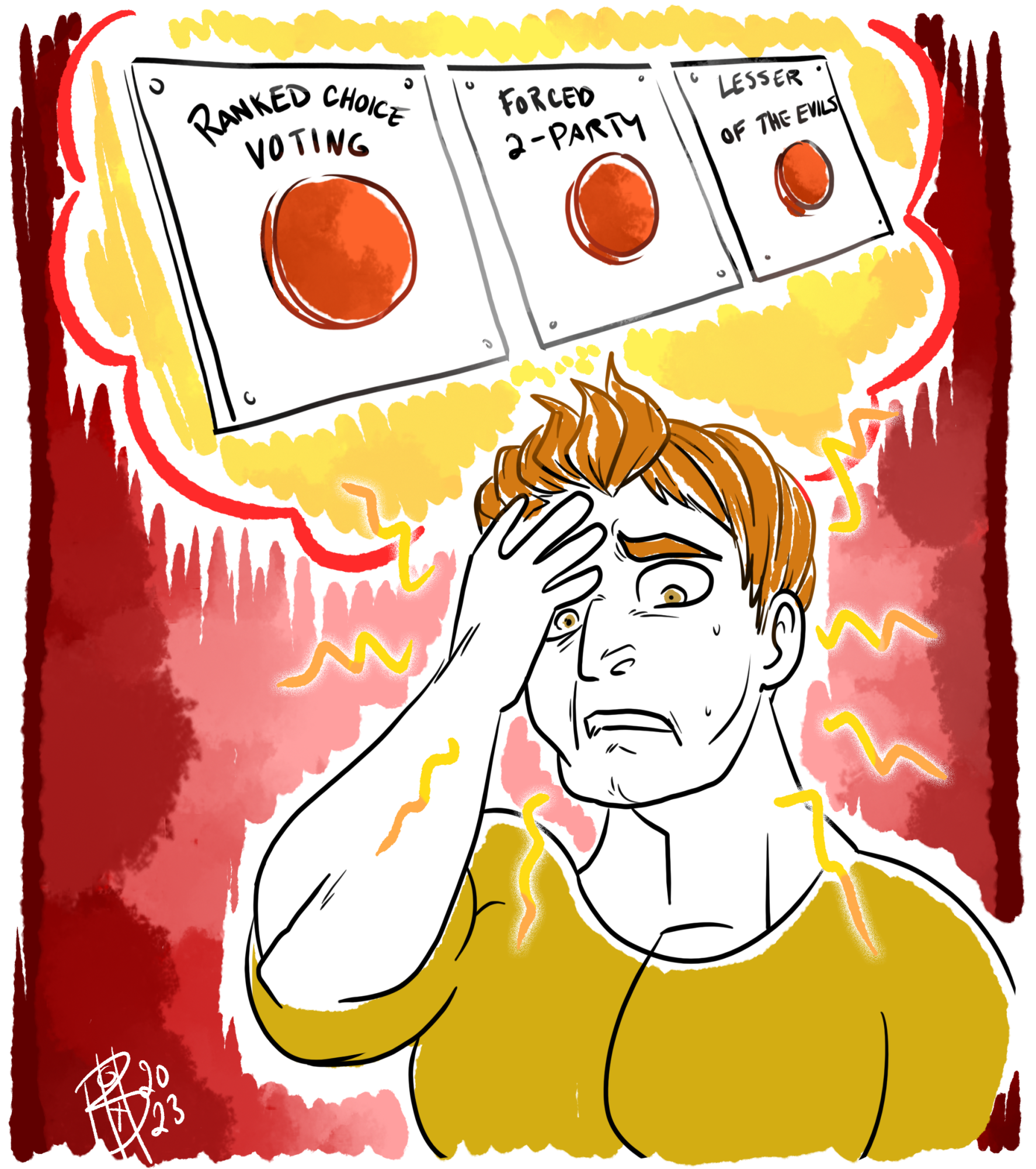Editor’s Note: This column does not represent the opinion of The Daily Barometer. This column reflects the personal opinions of the writer.
In November 2024, Oregonians will have the chance to vote on implementing ranked choice voting as a method for all state and federal elections, according to House Bill 2004.
The bill also requires the secretary of state to establish a program to educate voters on ranked choice voting, submit reports to the Oregon Legislative Assembly analyzing whether existing laws are inconsistent with ranked choice voting and more.
The Congressional Research Service defines RCV as a voting system that permits voters to rank multiple candidates in order of their preference when voting on a ballot. RCV, as opposed to single choice voting or first-past-the-post, allows each voter to rank multiple candidates for the same office on a ballot in order of preference rather than making a single choice.
RCV is also referred to as instant-runoff voting, and it is the most effective method when deciding elected officials, and would increase voter turnout rates.
The two biggest reasons people do not vote is due to a lack of interest or a dislike for the candidates, reported by Axios, based on data from the U.S. Census Bureau collected on the November 2020 election.
The United States ranks at 31 in voting-age population turnout, between Colombia (62%) and Greece (63%), trailing behind countries including New Zealand, Germany and Argentina, according to the Pew Research Center.
While 94% of Americans are registered to vote, only 62.8% of voters showed up to the polls.
There was a time when voting in America excluded any person who wasn’t a white, male landowner before the 15th Amendment, then women before the 19th Amendment and black people before the Voting Rights Act of 1965. Unfortunately, about one-third of Americans still take their right to vote for granted.
A quick survey conducted on Reddit, the largest online forum, found that most users, either Corvallis residents or Oregon State University students, feel that RCV is a better alternative than SCV.
Ranked choice voting brings the incentive back to elections, allowing citizens to vote for their favorite candidates as opposed to feeling forced to vote for the lesser of two evils.
After ballots in an RCV election are counted, if a candidate is the majority of an electorate’s first choice, that candidate is the winner of the election. However, if no first-choice candidate is voted as a majority, the candidate with the fewest first-choice ballots is eliminated, and those ballots of the eliminated candidate are counted for their second-choice candidates, according to the CRS.
A rinse-and-repeat process until one candidate receives the majority of votes.
Ranked choice voting has been challenged in multiple states. However, federal courts have held RCV as a policy choice to implement primary and general elections that do not violate any constitutional requirements, according to the CRS.
Although the court acknowledged that no election system is perfect, if RCV “impose(s) any burdens on voters’ constitutional rights to vote, they are minimal at best.”
Furthermore, the government supported interest in RCV and gave voters the choice to use their own voting preferences.
In other words, ranked choice voting can rid the chokehold of the two-party system upheld by Democrats and Republicans.
In 2022, the PRC reported that about 61 percent of U.S. adults have an unfavorable view of the Republican Party, while 57 percent hold a negative view of the Democratic Party.
In 2023, Gallup reported a survey on American political party affiliation they’ve been conducting since 1988. The analytics and advisory company found that while Democrat and Republican affiliation has decreased, Independent affiliation has increased.
In 2022, 41 percent of Americans identified as Independent, up from 31 percent in 1988.
George Washington’s 7,641-word farewell address, drafted alongside Alexander Hamilton, urged the American people to remain unified and resist political parties, according to History.
The letter included three main principles, including caveats of the dangers of loyalty to political parties over the country. Washington feared that party loyalty, as opposed to common interest, would foster a “spirit of revenge,” and enable “cunning, ambitious and unprincipled men” who would “usurp the reins of government for themselves,” according to History.
The first American president, who humbly and voluntarily stepped down after two terms, didn’t see a necessity for political parties, so why should you?
Change is hard, but if there’s one system that has been known to constantly evolve throughout American history it’s the system which grants civil rights and liberties to citizens, including voting rights.












































































































